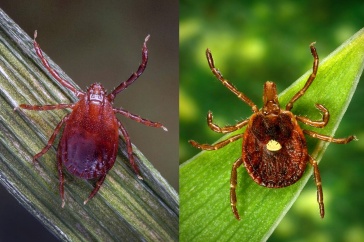
When the state experiences an outbreak of an infectious disease in animals, the time it takes to identify the disease can have a significant impact on the treatment and outbreak response. Now, that time period has been sharply reduced from what could take days, down to minutes at the NH Veterinary Diagnostic Lab thanks to the acquisition of a sophisticated type of mass spectrometry.
As part of the NH Agricultural Experiment Station at the University of New Hampshire, the NH Veterinary Diagnostic Lab serves the state of New Hampshire as a key partner with the New Hampshire Commissioner of Agriculture and State Veterinarian in their efforts to monitor and control important animal diseases. The lab also provides diagnostic services to hundreds of veterinarians from New Hampshire and New England who use the lab’s histopathology, microbiology, serology, and necropsy services for the diagnosis of animal diseases in pets, farm animals, wildlife, zoo, and marine animals.

Credit: Rob Gibson/UNH
The lab recently acquired Matrix Assisted Laser Desorption Ionization Time of Flight Mass Spectrometry (MALDI-TOF) instrumentation. The instrument breaks complex molecules into smaller pieces, which are separated by atomic mass, producing a “molecular fingerprint” to quickly identify infectious agents. The fingerprint is matched against a database of known infectious agents. Mass spectrometry, while not a new technology, is new in the application of clinical microbiology and is revolutionizing microbiology labs worldwide.
“MALDI-TOF provides rapid and accurate identification of microbial agents. With thousands of organisms in the database, this is the most in-depth level of identification available other than performing DNA sequencing, which can be more costly and time consuming. After the organisms are grown, the time for a bacterial identification is minutes when compared to the traditional methods, which can take days,” said Robert Gibson, managing director of the NH Veterinary Diagnostic Lab.
“Accurately and rapidly identifying infectious agents is critical in safeguarding animal health, public health and New Hampshire agriculture. The majority of infectious diseases in people, including the top bioterrorism agents are considered zoonotic, which means they can be transferred from animals to humans. The speed at which we will be able to help diagnose contagious and reportable diseases to our clients and regulatory officials will have a significant impact on treatments and outbreak response,” Gibson said.
With a price tag of more than $200,000, the new equipment was made possible in part by a gift from a private donor. The majority of the cost of the new equipment, manufactured by Bruker Corp. of Billerica, Mass., was paid for by the NH Agricultural Experiment Station.
The addition of this new technology is part of other significant upgrades to equipment and technology that followed the opening of the lab’s new facility in 2015. Construction of the new facility and these continued investments by the university allow the lab to more effectively provide essential diagnostic services to the state’s agricultural, veterinary, wildlife, and public health communities and enrich their contributions to the academic STEM opportunities for students in the university’s biomedical sciences and pre-veterinary medicine programs.
The lab serves the state of New Hampshire by providing accessible, timely, and accurate diagnostic services for the?New Hampshire Department of Agriculture, Markets, & Food,?New Hampshire Department of Health and Human Services,?New Hampshire Fish and Game Department, state and local law enforcement agencies, veterinarians, farmers, and other relevant state, regional, and federal agencies. It is co-funded and co-managed by the?New Hampshire Department of Agriculture, Markets & Food?and the?UNH College of Life Sciences and Agriculture. It has served the state and the university since 1970, working at the junction of animal health, public health, environmental health, and economic health.
Founded in 1887, the?NH Agricultural Experiment Station?at the?UNH College of Life Sciences and Agriculture?is UNH’s original research center and an elemental component of New Hampshire's land-grant university heritage and mission. We steward federal and state funding, including support from the?USDA National Institute of Food and Agriculture, to provide unbiased and objective research concerning diverse aspects of sustainable agriculture and foods, aquaculture, forest management, and related wildlife, natural resources and rural community topics. We maintain the Woodman and Kingman agronomy and horticultural research farms, the Macfarlane Research Greenhouses, the Fairchild Dairy Teaching and Research Center, and the Organic Dairy Research Farm. Additional properties also provide forage, forests and woodlands in direct support to research, teaching, and outreach.
-
Written By:
Lori Wright, '06G | NH Agricultural Experiment Station | lori.wright@unh.edu | 16038621452



















































